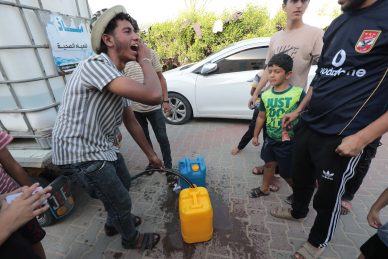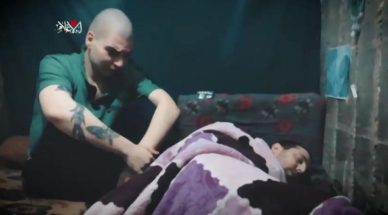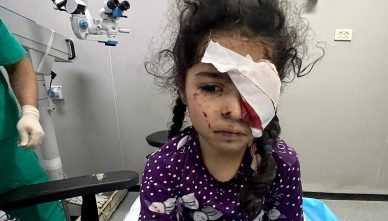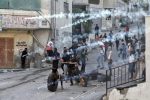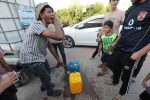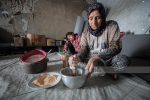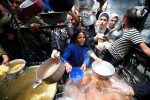GAZA, (PIC)
The Euro-Mediterranean Human Rights Observatory said that Gaza is experiencing a silent wave of death, claiming increasing numbers of elderly and children due to the dire living conditions imposed by Israel. These conditions, including starvation, severe suffering, deprivation of healthcare, and a total blockade, are being deliberately enforced to destroy the population, constituting part of an ongoing genocide that has lasted for over 19 months.
The observatory emphasized in a press release on Saturday evening that the intensified blockade, lasting more than two months, has devastating long-term effects, particularly on the most vulnerable groups in Gaza. It described a systematic Israeli policy aimed at eradicating the means of survival and eliminating any possible alternatives for existence, turning the humanitarian catastrophe into a primary tool for committing genocide.
The observatory documented the deaths of 14 elderly Palestinians in Gaza last week due to complications from hunger, malnutrition, and lack of medical care. Israel directly caused these conditions by completely sealing off crossings and preventing the entry of goods and humanitarian aid since March 2.
Jalal, the son of elderly victim Taleb Al-Arja, who died from food shortages, shared that his father had recently suffered severe health complications, with hunger and lack of nutrition weakening his body. They took him to Nasser Hospital, where doctors diagnosed him with severe anemia and extreme deficiencies in proteins and minerals.
The observatory noted that these victims perished in different areas of Gaza, where residents face extreme shortages of food, water, and medicine. As famine spreads, the healthcare system has completely collapsed, leaving critically ill individuals, particularly the elderly and sick, isolated and facing death.
The observatory documented the death of 84-year-old Misbah Abdul Raouf Abdul Ghaffour in Khan Yunis on Saturday. His family reported that his health deteriorated rapidly after being diagnosed with stomach cancer. Due to the total Israeli blockade, he could not receive treatment outside Gaza, where medical care is practically non-existent. His condition worsened due to malnutrition and the absence of suitable food.
Additionally, 80-year-old Taleb Sabah Suleiman Al-Arja passed away on May 7. His son, Jalal, explained that after the war in Gaza and the severe blockade, his father endured multiple health crises triggered by food shortages. The family lived in tragic conditions in Rafah, and their suffering worsened when they were displaced to Khan Yunis, where they lacked even the most basic necessities. Jalal recounted how his father struggled with the daytime heat inside their tent and the biting insects at night. As an elderly man, he could not tolerate hunger and thirst, often requesting cold drinking water and specific foods like chicken, fish, eggs, and fruit—none of which were available.
Jalal added that his father fell gravely ill recently, with starvation and lack of food severely weakening him. They rushed him to Nasser Hospital, where doctors diagnosed him with extreme anemia and severe protein and mineral deficiencies. Within less than 30 hours, he failed to respond to medications and nutritional supplements, eventually passing away.
The observatory reported that dozens of elderly patients have arrived at hospitals, most suffering from acute malnutrition and anemia, with no treatment available for their chronic illnesses. Forced to rely on canned food for survival, their health has deteriorated critically, leading to fatal outcomes in several cases.
It also pointed out that an increasing number of elderly individuals, children, and patients are dying due to hunger and the total collapse of Gaza’s healthcare system under Israel’s blockade.
The observatory stressed that the absence of an effective health-monitoring mechanism in Gaza means that many of these deaths are recorded as natural, even though they are direct consequences of starvation policies and the destruction of the healthcare system. It described this as a form of deliberate killing prohibited under international humanitarian and criminal law.
Additionally, the observatory stated that such actions constitute grave crimes under the Rome Statute of the International Criminal Court. It emphasized that acts such as starvation and denial of healthcare, which lead to death, qualify as full-fledged war crimes and crimes against humanity when committed systematically against civilian populations, reflecting the ongoing assault by Israel against Gaza’s residents.
It further asserted that these acts amount to genocide, whether through direct killing, inflicting severe physical or psychological harm, or imposing living conditions designed to destroy a protected group wholly or partially. It accused Israel of carrying out this crime against Gaza’s civilians continuously for more than 19 months.
According to the observatory, the humanitarian crisis in Gaza has reached catastrophic levels. Starvation is no longer confined to vulnerable populations but has spread across all segments of society, as essential services collapse, food and healthcare vanish, and shelter becomes scarce.
The observatory emphasized that Israel’s illegal blockade, imposed since the start of the genocide in October 2023, along with systematic restrictions on humanitarian aid and the deliberate destruction of healthcare infrastructure—especially over the past 70 days—has resulted in irreversible devastation, affecting the health of over two million people in Gaza.
It further warned that the current Israeli-American plan concerning humanitarian aid is merely a maneuver to prolong the unlawful blockade. The plan essentially repackages starvation as a misleadingly humanitarian initiative, legitimizing its ongoing use as a weapon in the continuing genocide.
The observatory called on all nations to fulfill their legal responsibilities and take immediate action to end the genocide, lift the illegal blockade, and implement real measures to protect Palestinian civilians, particularly the elderly and children.
Additionally, it urged the international community to immediately work towards lifting Israel’s unlawful blockade, which is the only way to halt the worsening humanitarian crisis and allow aid into Gaza. Any delay in lifting the blockade, it warned, will exacerbate the catastrophic situation and continue trapping over two million people in hunger, disease, and thirst, depriving them of the basics of a dignified life.
The observatory also called for economic, diplomatic, and military sanctions against Israel for its grave, systematic violations of international law. It advocated banning arms exports to and purchases from Israel, halting all political, financial, and military aid, freezing the assets of officials implicated in crimes against Palestinians, imposing travel bans on them, and suspending trade agreements granting Israel economic benefits that enable ongoing violations.
Furthermore, the observatory urged all states to hold accountable and prosecute countries complicit in these crimes, particularly the United States and other nations providing Israel with support in military, intelligence, political, legal, financial, media, and economic fields—assistance that facilitates the continued commission of these crimes.


